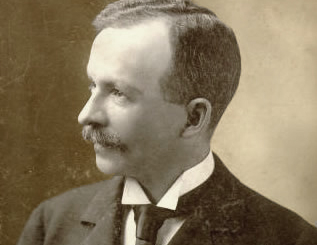
“The Negro Question,” originally served as the title of an essay published in 1849 by Thomas Carlyle, in which he argued for the impossibility of a society in which all citizens were free. George Washington Cable reacted strongly against Carlyle’s racism, advocating for the rights of freed slaves in a polemic of the same name in 1890. Believing the argument to be empty without the voice of an African American, he reached out to Charles Chesnutt. Their exchange concerning Chesnutt’s essay, “The Negro’s Answer to the Negro Question,” initiated a close friendship, in which Chesnutt often turned to Cable for advice on how to navigate the charged post-antebellum world.
My Dear Mr. Cable:—
I enclose herewith three copies of “The Negro’s Answer to the Negro Question” as per your suggestion.
I would have had them sooner, but have really not had time to write them until now. I shall be very glad to have you place them where they may possibly do some good.
Professor Scarborough, of Wilberforce University (a colored institution of this state), and the author of a series of Greek textbooks published by A. S. Barnes & Co. of New York, if I am not mistaken, has an article in the March Forum. I have not read it yet, and do not know what it is about, but I mention the fact because the professor is a Negro, and a full-blooded one at that; perhaps you know him already—he is a scholar and a gentleman.
The article by Professor Wright of Berea College in the last Independent I believe was a good one; and the Negro question, I am convinced, will become a more and more prominent subject of discussion until there is a radical departure at the South in the right direction.
Very respectfully yours,
Chas. W. Chesnutt
From “To be An Author”: Letters of Charles W. Chesnutt. Edited by Joseph McElrath, Jr. and Robert C. Leitz, III. Princeton: Princeton University Press, 1997. p. 31.
FURTHER READING
Chesnutt’s “Grapevine,” the first ever to be published by an author of African American descent in The Atlantic.
Reconstructing the New Orleans of Cable’s The Grandissimes.
Carlyle’s “Original Discourse.”


